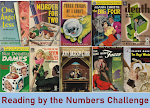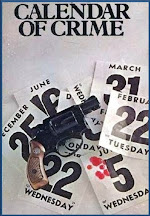 I have been working on The Year's Best Science Fiction 17th Annual Collection edited by Gardner Dozois all year. When I signed up for Jay's Deal Me In Challenge, it required that we submit a list of short stories that we we would like to read over the course of the year--one per week, dealt to us at random with the luck of the draw. I decided that this would be the chance to finally read this huge collection of science fiction stories that I got for Christmas one year. Dipping into it now and then would be less difficult than reading 640 pages all in one go.
I have been working on The Year's Best Science Fiction 17th Annual Collection edited by Gardner Dozois all year. When I signed up for Jay's Deal Me In Challenge, it required that we submit a list of short stories that we we would like to read over the course of the year--one per week, dealt to us at random with the luck of the draw. I decided that this would be the chance to finally read this huge collection of science fiction stories that I got for Christmas one year. Dipping into it now and then would be less difficult than reading 640 pages all in one go.Dozois does an excellent job selecting stories representative of each year in science fiction--the stories range from hard science fiction to fantasy and everything in between. There are cautionary tales and what ifs; there are peaks at the future and the past. Overall, a fine collection. ★★★★
Here are the stories and my summaries:
"The Wedding Album" by David Marusck: A story about virtual reality. In this one instead of creating photo albums--people have created Sims of their favorite moments in life. But what happens if your simulations become just as real as you are? What if they demand rights as individuals. And what if all that is left of you is one of your simulations?
"10 [to the 16th Power] to 1" by James Patrick Kelly: This interesting time traveler story gives a different take on someone going back in time to the 1960s to try and change history. Most people focus on the assassination of John F. Kennedy. But Mr. Cross has a different objective in mind when he lands in the backyard of a young boy who loves science fiction stories...and is more likely to believe in a man from the future than most. Excellent story!
"Winemaster" by Robert Reed: This story predates this year's movie Downsizing by nearly 20 years but it contains a similar premise--humans making themselves small in one way or another for reasons of wealth, expediency, or safety. In Reed's story a large percentage of the educated population downloads their personalities into tiny - and extremely fast - bodies. They live an hour like a person lives a year, and their brains are so compact that heavy atoms can erase memories. So-called normal humans have grown fearful of these "transmutated" people and if they find them outside designated areas will kill them. We follow a group as they race to safety in Canada where there's more acceptance.
"Galactic North" by Alastair Reynolds: Previous to this short story, my only experience with Alastair Reynolds was his collection of short stories, Zima Blue & Other Stories. (2006) I mention in that review that Reynolds is a hard science science fiction writer with a tendency towards dark stories--but an excellent story-teller. This is evident again in "Galactic North," an earlier story published in 1999. Here we have a story of betrayal, obsession, and revenge that spans 40,000 years of future history. It all stems from an ambush of a cargo ship transporting cryogenically-frozen sleepers. The captain of the ship has been conditioned to do whatever it takes to bring her cargo through safely...even if it means chasing the one she believes has betrayed her through all of space and time.
"Dapple: A Hwarhath Historical Romance" by Eleanor Arnason: In which we find that females across the universe face similar restrictions--even when they are supposedly the wise ones and in charge. A young girl decides she wants to balk tradition and go into a profession traditionally held by males--but she will have make a perilous journey before she can claim her right to be what she wants to be.
"People Came from Earth" by Stephen Baxter: This a bittersweet story about the last people of Earth....in a dying colony on the moon and their efforts to save what's left of humanity.
"Green Tea" by Richard Wadholm: A crewman comes to tell a businessman the results of his latest shipment. A cargo that has cost the lives of many and while the crewman may not exact physical revenge he does force the businessman to listen to his tale.
"The Dragon of Pripyat" by Karl Schroeder: takes place long after the Chernobyl disaster. The site is still "hot" radioactively and there is always a danger that another disaster could be triggered. Gennady Malianov is a freelance nuclear inspector who is hired by the Chernobyl Trust to investigate the site. Someone is extorting money from the Trust by threatening to trigger just such a disaster unless they are paid. Malianov finds more than he bargained for when a old man living in the danger zone tells him of a dragon living near the reactor's remains.
"Written in Blood" by Chris Lawson: Written before 9/11, the story focuses on Muslims and the fear and resistance people of their faith face. A man discovers a way to write the Qur'an in the blood (DNA) of the faithful, but a believing man of science fears what use the secrets of that DNA might be put and makes his daughter (a budding young scientist herself) promise to find the key to the DNA...and a way to protect Muslims from their very faith being used to kill them.
"Hatching the Phoenix" by Frederik Pohl: This story takes place in Pohl's universe of Gateway--where the Heechee, an enigmatic race of aliens have left discarded technology which helps humans explore the universe. In this one, an ultra-rich woman has financed a mission to observe a planet whose sun is about to go nova.
"Suicide Coast" by M. John Harrison: This story shows us what people will do to make their lives seem more real once everything is virtual and humanity is "cored" (directly plugged in to virtual reality). But is even the real thing real anymore?
"Hunting Mother" by Sage Walker: tells the story of genetically engineered "humans" colonizing new worlds. The colonists are mixtures of humans and human/animal combinations. Our protagonist, Cougar, has some of the genetics of his namesake. And he faces a choice as his mother, a human, becomes sick and is coming to the end of her life.
"Mount Olympus" by Ben Bova: This is a story about two men who are the first to land on top of the tallest mountain on Mars. What begins as a quest to get their names in the record books becomes a struggle for survival--nobody told them that the carbon dioxide that makes up so much of the atmosphere will freeze on the cold, bare rock, covering it with a dangerous invisible layer of dry ice. They learn much about Mars, but even more about themselves as they have to work together to get back to their ship.
"Border Guards" by Greg Egan: This story gives readers a different twist on the subject of eternal life. Jamil, our narrator, lives in a world where death has been banished. Those who tire of their current situation in immortality find ways to leave their current life and slip off to another town and another "lifetime" full of new friends and different experiences. Jamil is easilty depressed and has just come out of period where he was "dead" to his friends. When he starts playing virtual soccer with them again, he meets a brand-new player, Margit. Margit is exceptional--make goals that no one has ever made before. But she is exceptional in more ways than one. She is one of the oldest ones...and she knows what it means to lose someone to real death...not just the death of a current "life." The story touches on how we handle death, but more importantly it examines how we handle life.
"Scherzo with Tyrannosaur" by Michael Swanwick: Swanwick's story reminds me a bit of The Restaurant at the End of the Universe by Douglas Adams. But--instead of treating time-travelers to a view of the end of everything--this place allows folks to go back in time to the era of dinosaurs and see a T-rex up close and personal (through a window that's rated at twenty tons per square inch). Our narrator is the palenontological director and host of Hilltop center, a research center in the late Cretaceous period. The Time Safety Officers are always on guard to make sure no one uses their knowledge of the past for profit--or changes anything that will affect the timeline. But what if the director discovers something personal that he just has to fix? Will the Officers let him get away with it? Will his future self?
"A Hero of the Empire" by Robert Silverberg is an Alternate History story set in a world where the Roman Empire never fell. Here, a Roman nobleman is sent as punishment to a remote corner of the Empire--to a city we might recognize in our timeline as Mecca. And we learn how history can sometimes be made or unmade through a chance meeting.
"How We Lost the Moon: A True Story" by Paul J. McAuley. Beware--spoilers ahead. [It's difficult to talk about the story at all without letting a cat or two out of the bag--besides, the title gives the punch line away....] Our narrator and his collegue Mike Doherty were sent to check on some odd readings from a power source on the far side of the moon. As soon as Mike sees the hole in the floor of the crawl space below the power chamber, he knows what's happened--but he won't tell his buddy. After all, he's got the same info as Mike--he ought to know too. But how many people are going to think that a black hole is opening up in the middle of the Moon?
"Phallicide" by Charles Sheffield: a story of the not-so-distant future tells of a brilliant young woman whose scientific mind gets her away from a domineering, patriarchal religious group. The group wants her to use her scientific talents to produce a drug that will keep their Blessed Leader "up" to the job of fathering future generations, but Doctor Rachel may have other plans.
"Daddy's World" by Walter Jon Williams: Little Jamie lives with his family in the perfect little world--with funny, helpful teachers who allow him to learn at his own pace. With lots of time to play after the lessons are over. Mom and Dad are always there when he needs them and they always have family time. It's all perfect--too eerily perfect. But cracks begin to appear in Jamie’s world that reveal rifts within his family, and he begins to see the terrifying reality behind the walls of his life, and to understand that perfection has its price.
"A Martian Romance" by Kim Stanley Robinson: Robinson has been on my SF radar for a long time. But, as far as I can remember, this is the first story I've read by him. This story tells about a terraforming effort on Mars that has gone wrong. The "old ones" who were involved in completing the project are heartbroken that all of their work has been for nothing--but the younger Mars colonists see hope for the future...even on a cold and barren world.
"The Sky-Green Blues" by Tanith Lee: A strange story about Frances, a journalist on an alien world, who wants to complete an interview with an elderly writer before invaders destroy everything. She and the writer's servant escape the enemy invasion...only to learn that that the story Frances has been recording may be a different kind of story all together.
"Exchange Rate" by Hal Clement: Clement is a legend in the science fiction field. This story finds human explorers under pressure in more ways than one who must figure out and interpret the motivations of an alien species on an incredibly strange planet before their time runs out. [I just have to say that I did not get this one at all. It may be because Clement's hard science was over my head and there was so much of it that it was a bit mind-numbing.]
"Everywhere" by Geoff Ryman: This one portrays a purportedly utopian society and asks the question: Do those who live in utopia really recognize it as such? And do we, the readers, recognize the world described in here as a perfect society? I'm not sure I do....
"Hot House Flowers" by Mike Resnick gives readers a different look at what the immortal life might look like. What if science found a way to keep the human body alive for just about forever, but there was no guarantee what shape it would be in? What if men and women became little more than "hot house flowers" with every need but one--a meaningful life--tended to by human gardeners? And what if the weed of discontent invaded the garden?
"Of Scorned Women & Causal Loops" by Robert Grossbach: A cautionary tale for all the egotistical men who think they know everything...sometimes it just might be a good thing to listen when a woman tries to tell you something. Especially if you plan to travel through time.
"Son Observe the Time" by Kage Baker: A time travel story set in the world of The Company--a group, one of whose functions is to travel to periods of destruction in the history of mankind and salvage works of art and other irreplaceable objects from the wreckage. This particular episode takes us to the days and hours leading up to the great San Francisco Earthquake.






























No comments:
Post a Comment